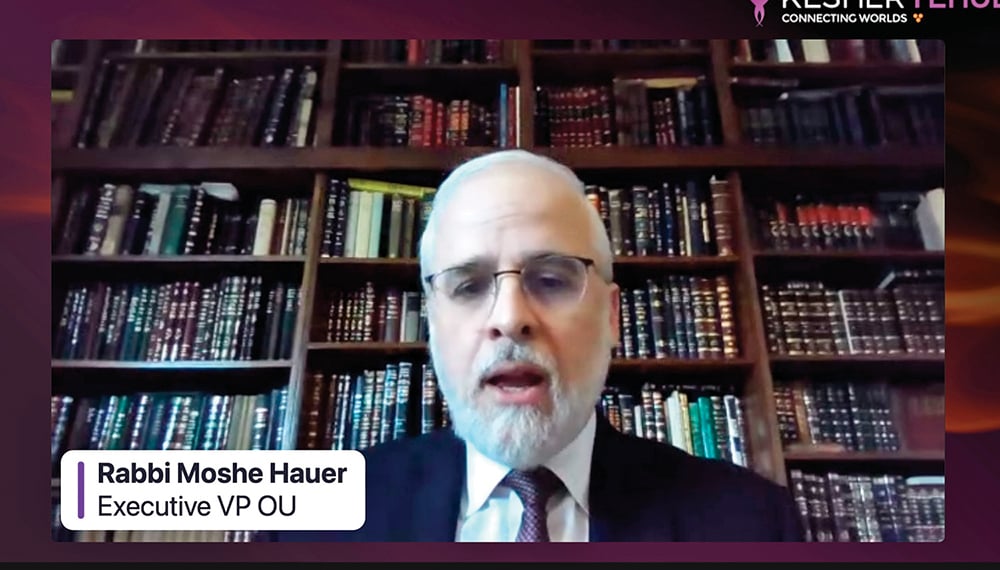Israel could easily make peace with Iran: it only needs to evacuate some settlements, allow a few Palestinian refugees to enter Israel, and the bitter enmity between Jerusalem and Tehran is a thing of the past.
Of course, it’s not quite that simple—but there is a theoretical kernel of truth to the aforementioned proposition. According to the Arab Peace Initiative, 57 Arab and Muslim states will establish “full diplomatic and normal relations” with Israel, in exchange for a “comprehensive peace agreement” with the Palestinians. The Islamic Republic of Iran is among the countries that endorse the initiative. Though not Arab, Iran is a member state of the Organization of Islamic Cooperation, which time and again expressed its support for the Arab Peace Initiative, including this past May in Cairo.
A decade earlier, in May 2003, a conference of the member states’ foreign ministers in Tehran “reaffirmed its support to, and adoption of, the Arab peace initiative for resolving the issue of Palestine and the Middle-East.” Indeed, an information leaflet about the peace initiative posted on the Arab League’s official website shows the flags of all countries that endorse the proposal, including those of Libya, Syria—and Iran.
First adopted by the Arab League in 2002, the Arab Peace Initiative has become a hot political item again since the organization mentioned for the first time the possibility of mutual agreed land swaps. The move was widely understood as a nod to changed realities on the ground that would allow Israel to retain major settlement blocs in the West Bank in a future final-status agreement.
Yet Jerusalem remains steadfast in rejecting the overture, or at least in assertively ignoring it…Defense Minister Moshe Ya’alon dismissed the Arab initiative as “a spin” and “a dictation” that would force Israel to make great concessions before being able to present its own demands.
Why the objections, the reservations, the mistrust? Okay, the likelihood of peace with Iran may sound beyond improbable, but why doesn’t Israel at least ride the initiative toward normalization with ostensibly moderate Arab states, many of which appear to be interested in teaming up with Israel against their common enemies in Tehran? (Some analysts say that the Gulf states are especially willing to normalize relations with Israel, mainly because they seek allies in their struggle against the Iranian threat.)
Skeptics say the Arab Peace Initiative is unacceptable to Israel because of certain clauses that no government can ever agree to. Well, if so, why doesn’t Jerusalem at least try to engage with the Arab world by professing interest in the initiative, if only to demonstrate the will for peace and avoid being labeled as the party that prevents an agreement? There is so much to gain—politically and economically—in making peace with the entire Arab world. What is Israel afraid of?
Originally, the Arab Peace Initiative offered Jerusalem diplomatic relations with the entire Arab world in exchange for a “full Israeli withdrawal from all the Arab territories occupied since June 1967,” the establishment of a Palestinian state with East Jerusalem as its capital, and a “just” and “agreed upon” solution to the Palestinian refugee question.
In 2002, the Israeli government was curious but perceived the initiative as a take-it-or-leave-it proposition it couldn’t possibly embrace. “On the surface, the proposal looked appealing, with its provision that the Arab states welcome peace with Israel—something they had been unwilling to do since the state’s inception,” the son of then-prime minister Ariel Sharon, Gilad Sharon, wrote in a 2011 memoir of his father. “But the details made the offer unacceptable.”
Today, Israel’s leaders make very similar comments.
But in the interim, it wasn’t always like this. Six years ago, then-prime minister Ehud Olmert welcomed the initiative, and in a remarkable but little-known episode of Arab-Israeli interaction, a semi-official Arab League delegation came to Jerusalem and discussed the peace proposal with Olmert and then-foreign minister Tzipi Livni.
In March 2007, after an Arab League summit held in Riyadh reaffirmed the original peace offer, the Foreign Ministry in Jerusalem asserted that “Israel is sincerely interested in pursuing a dialogue with those Arab states that desire peace with Israel.”
Olmert at the time keenly expressed his desire to meet the Saudi king to further explore the proposal, but no meeting was scheduled. Surprised by Olmert’s enthusiasm, the Arab League refused an encounter lest it be seen as engaging in “normalization” with the Zionist regime. The only Arab officials who could meet with the Israeli government were those whose countries already had peace treaties with Jerusalem, it was clarified, and so, months later, Livni met with Egyptian Foreign Minister Ahmed Abul Gheit and her Jordanian counterpart Abdul Ilah Khatib.
The Arab world could play an “important role” in helping Israel and the Palestinians make peace, Livni said in Cairo on May 10. At the end of this meeting, Gheit said an “Arab League preparatory team,” consisting of himself and his Jordanian colleague, intended to visit Israel “within the next few weeks as representatives of the Arab League,” the Israeli Foreign Ministry stated at the time, adding this would be “the first visit by official representatives of the Arab League in Israel.”
Gheit and Khatib indeed came to Israel, on July 25, but they insisted on diplomatic protocol that would “make it evident they’re representing their countries and not the Arab League,” according to an Israeli Foreign Ministry official. “So much for confidence building measures,” he scoffed.
In other words: the two foreign ministers said they had good and constructive talks, and would take them back to the Arab League—“and were never heard of again,” the Israeli official said. “We did try to reach out to the Arab League, but they disappeared. We did it openly and publicly, but it did not help moderate HAMAS, whose extremism and striving for power and violence is still there.” Later that summer, Hamas took over Gaza in a bloody coup. The rest is history: the Palestinian Authority fails to accept Olmert’s 2008 offer for a Palestinian state, two wars with Hamas in Gaza, a stalled peace process.
Enter US Secretary of State John Kerry, who has been working tirelessly to restart negotiations between Israelis and Palestinians ever since he took office in February. On April 29, he hosted an Arab League delegation in Washington, during which Qatari Prime Minister Hamad bin Jassim bin Jabr Al Thani for the first time signaled that a “comparable and mutual agreed minor swap of the land” would be acceptable.
Some 40 MKs signed a petition that forced Prime Minister Benjamin Netanyahu to appear in the Knesset for a special session dedicated to the Arab Peace Initiative. In his speech, Netanyahu called on PA President Mahmoud Abbas to “give peace a chance” and enter negotiations without preconditions, yet barely addressed the Arab League’s reissued peace proposal.
Deputy Defense Minister Danny Danon, a declared opponent of a Palestinian state, suggested that those behind the Arab Peace Initiative don’t really intend to ever accept Israel in their midst. “You have to sacrifice a lot, and on the other hand you’re not really going to get peace,” he told The Times of Israel last week. “Maybe if you sit in Qatar or Abu Dhabi it sounds good,” but those who know what happened in Gaza after the HAMAS take-over fear that the terror group could also conquer the West Bank and rain rockets on central Israel from there, he suggested. “I don’t think we should even consider this offer.”
“I don’t foresee any Israeli government willing and/or capable of returning to the 1967 lines, with or without territorial swaps,” said Dani Dayan, a former chairman and current chief foreign envoy of the pro-settler Council of Jewish Settlements. True, Dayan contended, Netanyahu formally endorses a two-state solution, but he also made it amply clear that Israel is not ready to return to the Green Line.
Everyone agrees that Israel has legitimate security concerns, but if a regional peace agreement is implemented, they should be much less serious, countered Galia Golan, a professor at Herzliyah’s Interdisciplinary Center who specializes in the Arab-Israeli conflict. In addition, “demilitarizations and international border monitoring have also been agreed at various times in the past,” said Golan, a veteran Peace Now and Meretz activist. “At the very least, in circumstances of 21st century warfare, continued occupation of the territories—or even part of them without equal swaps—probably does not offer more security than the creation of a Palestinian state and taking a chance on peace and end of the conflict.”
Besides security, there are other troubling demands that make the Arab initiative a nonstarter in the eyes of critics, such as the refugee issue. Another little-known clause in the Arab Peace Initiative rejects “Palestinian repatriation,” which implies that refugees living in camps on Israel’s borders will not be granted citizenship of their current host countries. This issue seems resolvable in the framework of a future Palestinian state, but critics fear it could further complicate issues.
International Relations and Strategic Affairs Minister Yuval Steinitz, who principally accepts the idea of a (demilitarized) Palestinian state, is less than enthusiastic about the proposal. “Every peace initiative is welcome but no peace initiative can replace bilateral negotiations between us and the Palestinians,” he told The Times of Israel last week. “We need to worry about genuine peace with genuine security—these items are not included in the Arab Peace Initiative….There are bilateral issues and it would not be right to discuss them with the entire Arab world, such as demilitarization and security arrangements that are essential for us.”
A veteran diplomatic official concurred. “Peace is a worthwhile objective, yet all promises of regional peace are futile and groundless,” he said. The Arab League endorsed the eponymous peace initiative but, beyond that, never played a significant role in the Israeli-Palestinian peace track, the official continued. “The Arab League has not been able to make peace in the Arab world—between Algeria and Morocco, between Libya and Sudan, Iraq and Kuwait, and so on and so forth. Why should anyone trust the Arab League with peacemaking?”
And yet there are those who believe the Arab Peace Initiative is an opportunity Israel cannot afford to miss—and they aren’t just a bunch of gullible lefties and peaceniks. Former minister Meir Sheetrit, who for 25 years sat in the Knesset for the Likud party and today serves as faction chairman for Tzipi Livni’s Hatnua, has always been a staunch supporter of the plan.
“The Arab Peace Initiative was relevant from its first day in 2002, when Saudi King Abdullah proposed it. Today, like then, I think that is the best idea that has ever been heard, through which we can achieve peace,” the Moroccan-born politician said recently in an interview. “It is over a decade later, and it still remains the fastest and best path to achieve peace. Because it is a comprehensive initiative bringing 56 Islamic countries to the table who proclaim, ‘If you return to the 1967 borders and find a just and accepted solution for the refugees, we—all 56 Arab states —are ready to make full peace with Israel.’ That is an amazing thing.”
As Sheetrit points out, the initiative has been approved four times in Arab League conventions since 2002. “Only with us [Israelis]—nothing doing. No prime minister wants to hear about it.”
For Yossi Beilin, a former justice minister and the chief architect of the Oslo Accords, it is clear why Israel’s right-wing governments were and are not interested in the Arab Peace Initiative: it refutes their dogma that the Palestinian-Israeli conflict, rather than being a territorial dispute, stems from the Arab world’s refusal to accept a Jewish state in the region, regardless of its borders.
“Out of the blue, 11 years ago, came the Arab world and said, ‘You make peace with your neighbors, we will make peace with you.’ It’s as simple as that,” he told The Times of Israel. “But rather than saying, ‘Hey, this is a revolution! Say it again!,’ we said, ‘No, you don’t really mean it. You can’t mean, after all—we know you.’”
“Once they accept the idea that we might be accepted by the Arab world if we make peace with the Palestinians, it puts the entire onus in the Arab-Israeli conflict on Israel… And [Israel’s right-wing leaders] are not ready, ideologically, to pay the territorial price for peace.”
The fact that the Arab League adopted the peace initiative on the very same day that a suicide bomber blew himself up in the dining hall of a hotel in Netanya, during a Passover seder, “made it easier” for opponents of the plan to play down its importance, Beilin said. Twenty-nine people died and 64 were injured in the March 27, 2002, Park Hotel attack, for which Hamas claimed responsibility.
According to Elie Podeh, a Hebrew University professor focusing on inter-Arab and Arab-Israeli relations, Israelis were suspicious of the peace initiative from day one. “This was not the result of a rational consideration of the initiative’s inherent potential; it’s an emotional reaction,” he wrote in Haaretz last month. “The Arab and Muslim world, in our minds, are generally linked to threats and danger; when they ‘launch’ a peace proposal at us, we don’t know how to react.”
An Israeli official who preferred to stay anonymous put it even more succinctly: “Peace with Iran, Afghanistan and Pakistan—very funny. Let’s be clear: We will not get New Year’s cards from Iran, Sudan or Libya under any foreseeable circumstances. It is nothing but a lack of seriousness to rely on such promises.”
By Raphael Ahren From The Times of Israel [Edited for brevity]













